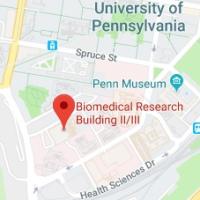Melanoma
Our research efforts in melanoma have spanned the past decade. Over this time period, we have worked with Dr. Meenhard Herlyn’s group at the Wistar Institute to lead efforts on the genetic and genomic characterization of cell lines and PDX used in pre-clinical modeling in melanoma, working, leading to over 25 publications focusing on intrinsic and acquired resistance to multiple different types of therapies. This effort cumulated in the publication of targeted massively parallel sequencing to characterize over 450 tumors, cell lines and patient derived xenografts (PDX) (Cell Reports, 2017). In the past, we also have worked on correlative studies in conjunction with clinical trials. We have two funded projects investigating inherited variation in association with outcome and immune related adverse events after treatment with checkpoint blockade, which are coming to fruition. Building upon our experience in massively parallel sequencing, the project we are doing on inherited variation in association with response to ipilimumab and our location within the Institute for Immunology, in the past two years, we also have worked on interdisciplinary projects that involve both cancer genetics and cancer immunology, specifically in melanoma (Nature, 2017; Nature Medicine, 2019), and have a funded core for massively parallel sequencing and analysis for the P01 Radiation – Immuno-oncology P01.
Example Projects:
- Evaluating the intersection and function of non-canonical BRAF mutations with other MAPK mutations using single cell sequencing
- Compilation of data on over 600 melanoma cell lines, PDX and tumor biopsies for in-depth analysis, with a particular view to determining if homologous recombination deficiency scores can be calculated from the targeted sequencing data (and correlate with mutation status)
- Analysis of data on association of response and immune related adverse events after treatment with ipilimumab, focusing on specific pathways and HLA groups
- Analysis of data on association of response and immune related adverse events after treatment with nivolumab and combination therapy (nivolumab and ipilimumab), focusing on specific pathways and HLA groups

